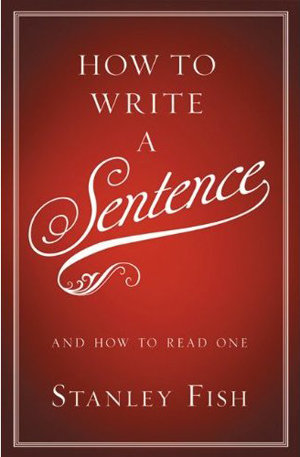Making sentences sing

Literary critic, legal scholar, and New York Times online columnist Stanley Fish’s just released a guided tour through some of the most beautiful, arresting sentences in the English language. How to Write a Sentence: And How to Read One
His favorite five sentences:
- John Bunyan (from The Pilgrim’s Progress, 1678): “Now he had not run far from his own door, but his wife and children perceiving it, began crying after him to return, but the man put his fingers in his ears, and ran on, crying, Life! Life! eternal life.”
- Jonathan Swift (from A Tale of a Tub, 1704): “Last week I saw a woman flayed, and you will hardly believe how much it altered her appearance for the worse.”
- Walter Pater (from The Renaissance, 1873): “To such a tremulous wisp constantly re-forming itself on the stream, to a single sharp impression, with a sense in it, a relic more or less fleeting, of such moments gone by, what is real in our lives fines itself down.”
- Ford Madox Ford (from The Good Soldier, 1915): “And I shall go on talking in a low voice while the sea sounds in the distance and overhead the great black flood of wind polishes the bright stars.”
- Gertrude Stein (from Lectures in America, 1935): “When I first began writing I felt that writing should go on I still do feel that it should go on but when I first began writing I was completely possessed by the necessity that writing should go on and if writing should go on what had commas and semi-colons to do with it what had commas to do with it what had periods to do with it what had small letters and capitals to do with writing going on which was at the time the most profound need I had in connection with writing.”



